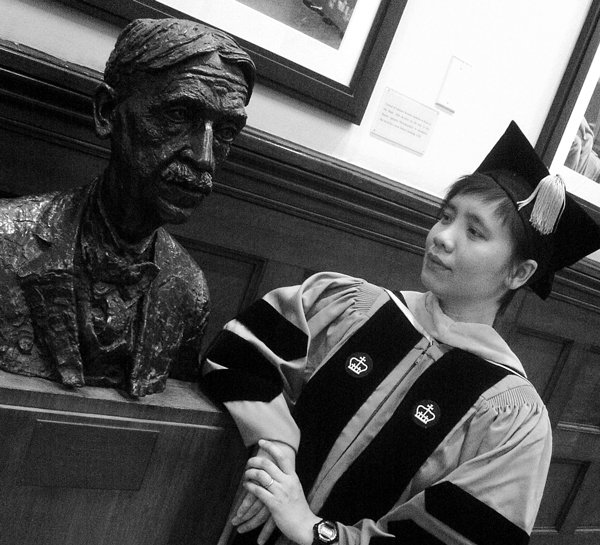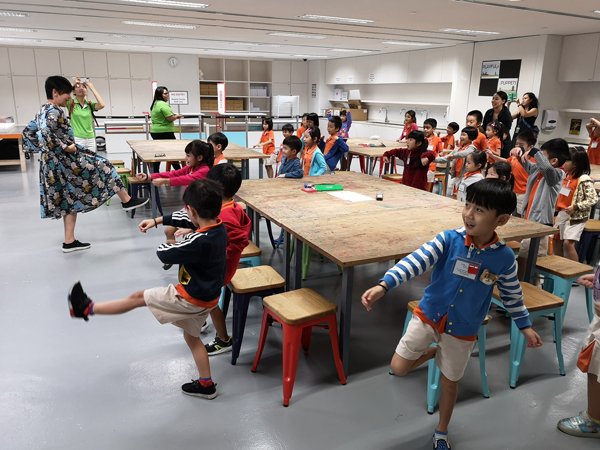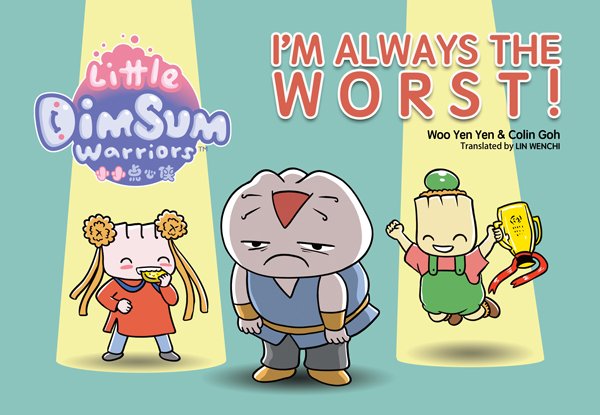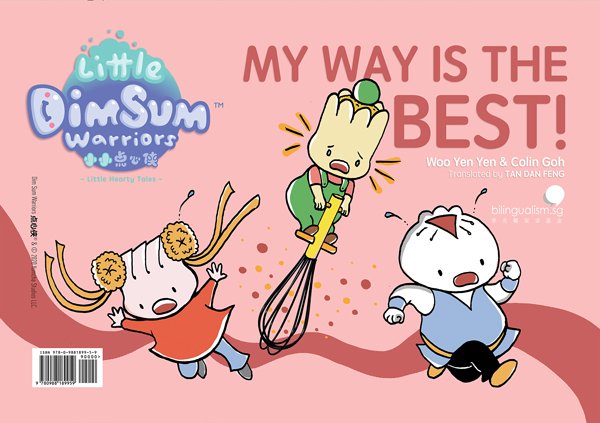5 Lessons I Learned From Being Last in Class
I was getting increasingly nervous – they were talking about which camera to use to produce a newer or older effect; the different steps of post-production; conversion from different frame rates; what lights to use, etc.
Here I was in a conversation with the team that would make a film with me, and I didn’t have a clue as to what they were talking about. I felt like I was last in class – a combination of utter embarrassment, and fear that someone would soon find out that I was really in the wrong place.
I started my career as an English teacher and have had a peripatetic career path. I have been a professor of education, co-founder of a hugely popular satirical web site, an award-winning film writer and director, a stage musical writer and producer, CEO of an entertainment and education technology company, and I’ve worked across Singapore, New York, Taiwan and China. Each time, I have stepped into an arena in which I’d never had prior professional experience.
I remember vividly the day that I had to meet my film team to talk about how we were going to make our film. I felt so embarrassed that even the production assistant had more experience than me. I was definitely the dumbest person in the room in terms of filmmaking. Was I going to just fake my way through it?
Here are some lessons that I learned from being the proverbial “last in class” – lessons which have nevertheless provided me with lots of adventures, and given me the tools to deal with whatever life throws at me. Learning from being “last in class” is also key to the growth mindset for kids.
Lesson 1: Only I Will Remember the Stupid Things I Say
When I first arrived in New York City as a graduate student, I had not traveled very much because I could never afford it, and I was not particularly “worldly” or “cosmopolitan”.
I remember attending classes at Teachers College, Columbia University where everyone seemed like they knew more than me. They knew all these terms that I was hearing for the first time, and they talked so easily and so eloquently in class. They seemed so smart, while my brain felt like it was straining just to catch up. I found myself not being able to speak up in class, and I felt truly dumb and deflated.
When I confessed this to my wonderful mentor at the university, she told me, “Just try saying one thing at each class, no matter how stupid it feels. You are the only one who will remember the stupid things you say.” I took this advice to heart, and started just saying one thing in each class, and soon, I got into the rhythm of the class instead of staying outside it. Eventually, Columbia gave me—the ‘last in class’—a prestigious research fellowship.

I learned that whenever we worry about saying stupid things, other people won’t really remember—because in most cases, they’re too busy worrying about the stupid things that they themselves might say.
Lesson 2: Ask for Help—Seriously
The day that I decided to make a film, I asked around to see who I could speak to, in order to learn more about filmmaking. I can’t remember who connected us, but I was introduced to Singaporean filmmaker Jasmine Ng. I bet she doesn’t remember this, but my first phone call to her went something like, “Errr… I want to make a film… can you tell me who I need to have on a film crew?” Jasmine was incredibly patient and professional and shared with me her experience. Just like my mentor at Teachers College, I took all of Jasmine’s advice to heart and worked my butt off to translate it into action.
In the various iterations of my career, many people have come to help when I have asked for help. I have come to realise that as a learner, my role is to listen and work incredibly hard to apply the advice given to me.
Lesson 2½ is: Always work with people who are smarter or more skilled than you in a particular field. Don’t be afraid of looking stupid in front of them. Learn what you can from them; smart people can propel you to a place you never imagined possible.
Lesson 3: Read Everything There is to Read About the Topic
My first feature film was truly amateurish, but my second feature film won a few major international awards and got sold to many territories and licensed to HBO and Netflix.
The difference between the first and second films was that I made myself watch many, many films after the first, and I read many, many, many manuals, dummy’s guides, interviews with directors and screen writers, whatever I felt was relevant. I would read incessantly and keep making notes on how I would apply and integrate this knowledge in directing and in screenwriting, until I had a map for how to proceed.
It’s this very same “learner” mindset that I’ve used in transitioning from being a professor teaching about postmodernism and poststructuralism to now being CEO of an edtech startup, where I have to deal with developing engineering teams, customer acquisition, cap tables and financial projections.
Lesson 4: Always Finish
With my first film, some crew members mutinied and left abruptly (partly out of fear that our inexperience would tarnish their reputation), thus plunging the whole project into a crisis. But I’ve learned over the years that every single ambitious project you embark on will encounter a crisis.
Crises are simply inevitable. And at some point, they will make me ask myself, “Should I just stop?”
I resolved to complete my first film despite the pretty dire circumstances. I felt that if I didn’t complete it, I wouldn’t have any product to show, and there would be no testament to my effort and learning. Over the years, “always finish the project, no matter how rough the journey” has become a mantra of mine.
As an addendum, 15 years after my first film (which was neither a critical nor commercial success at its time of release), the Singapore International Film Festival chose to honour it as an “Iconic Singapore Film” with special screenings at the National Museum. Despite the inept craft, there was a spirit that somehow came through. It shows you never can tell—and that no one would be even able to if we didn’t finish it.
So always finish!
Lesson 5: Being Last in Class More Regularly Will Increase Your Confidence and Speed of Learning
Over the years working on very different projects, I’ve noticed that people around me keep remarking how they find it hard to imagine that I’ve come from a different field. They find it surprising that a professor of education is so comfortable making films, or theatre, or helming a tech startup, or whatever. Frankly, many people who knew me before I went to Columbia were surprised I went into academia too.
I think this is because I’ve learned to be completely immersed in any sandbox that I am playing in. I’ve also found that I now learn faster—because I’m familiar with navigating the various emotions of the learning process, and also prepared for the labor you have to put in to complete the learning cycle.
In short, learning how to learn makes learning anything possible!
You Bring Something Important to the Table
I have a North Star – and that is teaching. My films came out the way they did because I am a teacher. I make comics the way I do because I’m a teacher. I run a business the way I do because I am a teacher.

We all bring something that’s unique to the table, because of our particular set of experiences. We may be the last in class on Day 1, but by Day 100 or 300, our particular experiences will completely re-shape the product or project into something that could not have happened without our contribution.
How Dim Sum Warriors Stories Teach About Learning
These experiences of being perennially ‘last in class’ but pressing on regardless have been very valuable on my journey as an entrepreneur and creator of stories.
We are always celebrating coming in first, but coming in last can often teach us even more. In some ways, starting out as the ‘last in class’ can even provide a strategic advantage, because you can only get better, not worse—and that feeling is really quite liberating. If you’re already ‘last in class’, you can’t fail! This is also key to the growth mindset for kids.
My co-creator, Colin Goh and I, have translated this message about learning into many of our Dim Sum Warriors stories, as funny comics for kids.
These are age-appropriate stories that make it easy to discussing winning and losing, being first and coming in last with kids. I strongly encourage you to read these stories and discuss the ideas with your kids.
For example, in My Way is the Best 我的方法最好, Shaomai has to find a way to master the Boing Boing Bat, which is very hard for him. And it’s even harder because his well-intentioned friends are constantly shouting instructions at him.
Meanwhile in I’m Always the Worst 我总是最差的, Baozi feels like he’s the worst at everything, but Shaomai and Xiajiao convince him that winning isn’t as important as enjoying the process.

Read these funny comics for kids!
Hello, I’m Yen Yen. I’ve been a professor of education, a film director, a script-writer, and co-creator of the Dim Sum Warriors comics. I’m currently CEO of Yumcha Studios and I work closely with passionate educators and parents towards a multicultural and multilingual world through funny comics for kids. I also host regular Doodle Dates, which are livestreamed sessions with cartoon drawing for kids with my husband, Colin Goh. It’s a lot of giggly fun! You just need to sign up for the Dim Sum Warriors Comic Reader App and you’ll get an invitation to our next session! If you want to partner up , please send me an email at yenyen@dimsumwarriors.com. I check all my emails personally and look forward to your questions.



